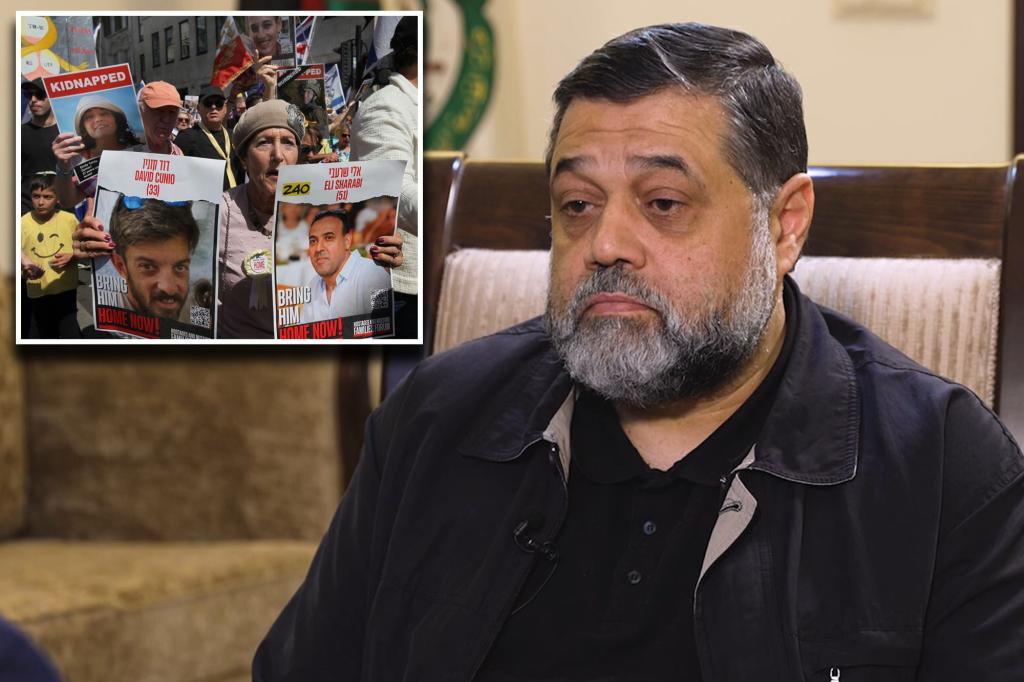In a recent interview with CNN, top Hamas official Osama Hamdan stated that no one knows for sure how many of the remaining 120 Israeli hostages in Gaza are still alive. He also addressed the cease-fire proposal that called for the release of some hostages in exchange for Palestinian prisoners, which Hamas rejected. While Israel believes over 70 hostages are still alive, Hamdan claimed he did not have the correct figure and blamed Israel for the suffering of the recently rescued hostages, suggesting that their mental problems were caused by Israel’s actions in Gaza.
Hamdan expressed no regret for Hamas’ attack on Israel last October, stating that it was a reaction against the occupation. He also rejected reports that Hamas’ chief in Gaza, Yahya Sinwar, referred to the deaths of Palestinians as “necessary sacrifices” in leaked messages. Hamdan dismissed these messages as fake and claimed they were sent to provoke people against the Hamas leader. He emphasized that no one could accept the killing of Palestinians, highlighting the humanitarian impact of the conflict in Gaza.
The interview with Hamdan coincided with US Secretary of State Antony Blinken’s criticism of Hamas for refusing a UN-backed cease-fire proposal, which he claimed was similar to one Hamas had proposed earlier. Hamdan defended Hamas’ rejection of the deal, stating that it did not meet the group’s demands, which included a complete withdrawal of Israel from Gaza, allowing Palestinians to determine their own future, reconstruction efforts, lifting the siege, and negotiations on a fair prisoners exchange. He emphasized that Hamas was ready to engage in talks if Israel met these conditions.
Overall, Hamdan’s statements in the interview reflected Hamas’ position on the ongoing conflict with Israel, denying responsibility for the suffering of hostages and emphasizing the group’s demands for a fair resolution. He criticized media reports linking Hamas to controversial statements and maintained that the group’s actions were in response to the occupation of Palestinian territories. Despite international pressure for a cease-fire, Hamas remained firm in its stance, insisting on specific conditions for ending the conflict and seeking a resolution that addressed the root causes of the conflict.
Hamdan’s comments also highlighted the challenges of negotiating a settlement between Israel and Hamas, with both sides holding firm positions on key issues. Despite calls for a cease-fire and international efforts to broker a peace deal, Hamas continued to advocate for its demands, including the release of Palestinian prisoners and the lifting of the blockade on Gaza. The interview shed light on the complexities of the conflict in the region and the deep-rooted issues that needed to be addressed in order to achieve a lasting peace between Israel and the Palestinians.


